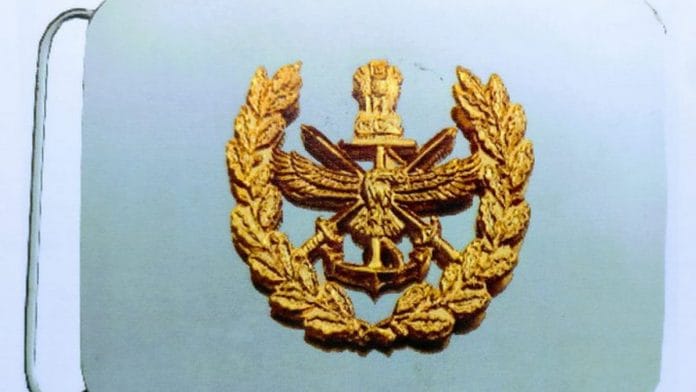The inordinate delay in announcing the successor Chief of Defence Staff to the late General Bipin Rawat is alien to the Indian military’s way of functioning. Military institutions, after all, loathe the absence of command, a vacuum in the chain of authority. It just doesn’t fit in the scheme of things. Military operational structures have a chain of command that takes over in the event of a senior getting incapacitated or removed for whatever reason. After all, a supervising authority with a rank superior to all those who serve under him is also accountable for all decisions and actions in that area of responsibility. There is a finality to that authority, which is comforting to the military way of thinking.
With the announcement of the Chief of Defence Staff (CDS), the Narendra Modi government entered a new military territory. There had been a demand over the years for creating the office of CDS, some even believing that it was the panacea to all military problems. As expected, there was much fanfare following the elevation of Gen Bipin Rawat as CDS. Much was expected, and much is still to be done. So it is an institution still in the making, no matter that Gen Rawat was burdened with additional, and often contradictory, authority as the Secretary of the Department of Military Affairs.
A challenge all over again
The biggest challenge that Gen Rawat took upon himself was the setting up of the joint theatre commands, almost single-mindedly. Integration, jointmanship, unified commands are all much discussed and desirable military initiatives. Professional militaries that have managed to achieve the required levels of integration have produced greater efficiency of the force. But it is the process of integrating the three Services that causes maximum heartache and resistance.
Each of the three Services occupies certain domain expertise, and given India’s obsession with status, some believe one is superior to the other. This is the biggest hurdle that Gen Rawat faced in his untiring efforts on integration. Given that the institution of CDS is a work-in-progress, and that his efforts were only slowly beginning to gather traction, all that work will have to start again with his successor.
The extraordinary delay in announcing the second Indian CDS leads to some simple conclusions. For starters, the process of integrating the three Services is clearly not really a key result area for the Modi government, otherwise, it wouldn’t let the office of CDS remain vacant for so long. And so it then follows, just as importantly, that the thinking which goes into selecting the next CDS is governed by matters other than the military. Institutional integrity is obviously secondary.
This is also the case in the tragic loss of lives from an error-strewn ambush in Mon district of Nagaland on the night of 4 December 2021. What happened, and its aftermath, is the subject of much speculation, and an official inquiry too, but it is the conduct of another institution of the Modi government that raises eyebrows. No government anywhere identifies its Special Forces at any time — before, during, or after an operation — successful or otherwise, as in this case. But on 6 December, Union Home Minister Amit Shah made a statement in Parliament, and the release explicitly stated: “Based on inputs received by the Indian Army about the movement of the insurgents near Tiru village in Tizit area of Mon district, a team of 21 para-commandos (sic) of Indian Army laid an ambush in the evening of 04.12.2021.”
Also Read: India’s new CDS will have to decide: Where does the loyalty of the military lie
Politics reign supreme
Political expediency clearly takes precedence over operational confidentiality, particularly given that the unit concerned is based locally in the same area, and recruits combatants from within the community. As a closed group social media post recounted: “The incident has hurt the Unit as much as the community, because we seriously consider them as our brothers, having considerable troops from this area.” That a much-decorated covert unit can be put out to dry in such a manner says a lot for institutional functioning. But it only gets worse when the same unit is offered at the altar of political brownie points following another Home Ministry meeting on 23 December.
The press release is another pointer to a complete disregard for procedures and institutions. The second point begins with a verdict, a judgment, when it declares: “A Court of Inquiry will initiate disciplinary proceedings against the army unit and army personnel…” How the Home Ministry got responsibility for matters exclusively under the Army Act remains a mystery. And then it brazenly prejudges the conclusion of the Court of Inquiry: “initiate disciplinary proceedings.”
The rampant assault on State institutions hasn’t left the Indian military untouched. This will remain the greatest challenge in 2022, just as it was in 2021. The military practises unimpeachable accountability of command, and for that impeccable reputation to be applicable to others, the Court of Inquiry must also look at intelligence provided to the unit concerned. The institutions which approved it must also be held accountable for their role in the tragedy. Military institutions practise that religiously, it is time others did too. The Modi government only stands to benefit from it.
Manvendra Singh is a Congress leader and Editor-in-Chief of Defence & Security Alert. He tweets @ManvendraJasol. Views are personal.
(Edited by Srinjoy Dey)






